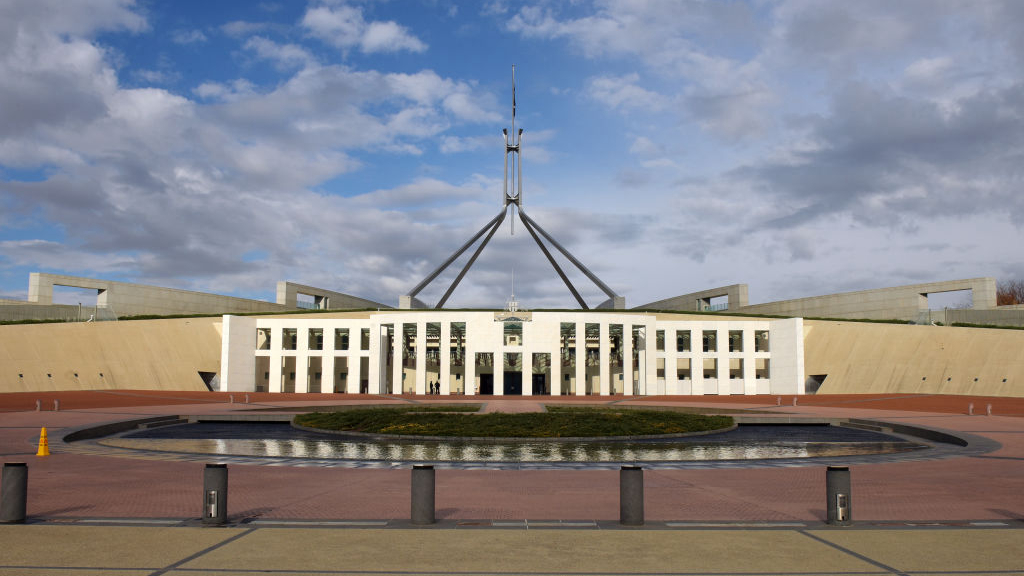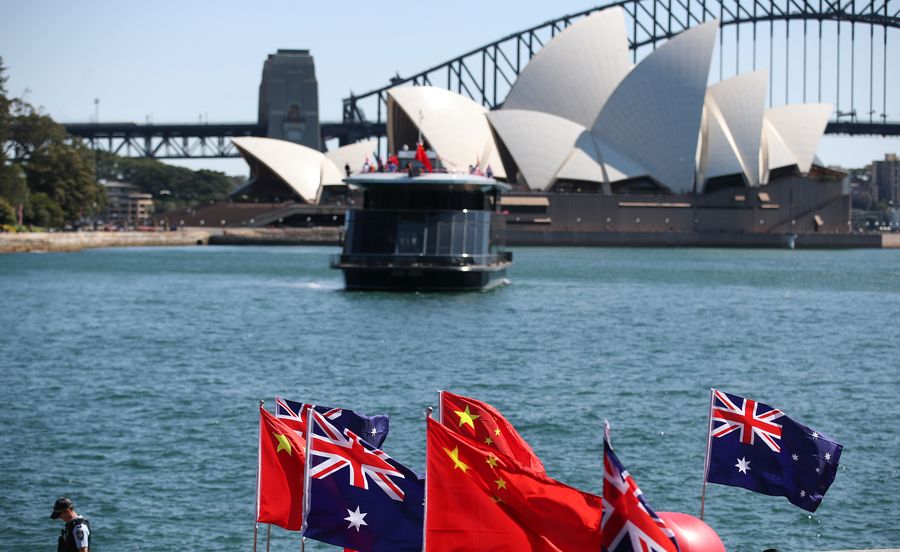
Parliament House stands in Canberra, Australia, May 1, 2019. /Getty
Parliament House stands in Canberra, Australia, May 1, 2019. /Getty
Editor's note: Hamzah Rifaat Hussain, a former visiting fellow at the Stimson Center in Washington, D.C. and former assistant researcher at the Islamabad Policy Research Institute, is a TV anchor at Indus News in Pakistan. The article reflects the author's opinions and not necessarily the views of CGTN.
Australia's adamancy in maintaining an unabated hawkish and unrealistic stance towards China is backfiring. Canberra's Foreign Investment and Review Board (FIRB) claimed that the country was not blocking Chinese investments but is prioritizing national security concerns and protection of critical infrastructure instead.
The irony is that by partaking in the AUKUS alliance which introduces a nuclear/naval component in the Asia Pacific, it is Canberra itself which is compromising security for its parochial interests. This has meant that an absence of a serious revamp of its foreign policy priorities on China which have been adopted since 2016 will result in Australia standing out as the only country which is pursuing disengagement, isolation and defiance of bilateralism on the international stage.
Out of all the Quad member states, it is the Morrison administration which is trumpeting calls to disengage with China by equating Beijing as a "national security threat". A change in leadership in Japan for example, is signaling a potential normalization of bilateral ties, yet Australia presents a unique case of over-reliance on China for economic growth while simultaneously being protected by the U.S. sponsored security umbrella guarantees to ward off perceived "Chinese expansionism".
This strategic choice reveals that Canberra is willing to suffer economic consequences for chest thumping which is not echoed by Japan, India or even the United States as a viable long-term strategy.
It was in 2016 that Chinese opposition as part of Australian foreign policy became solidified with previous meetings between ministers taking place the next year. Back then, attempts were made to limit grievances to diplomatic circles only to prevent further spillover effects; but in 2020, the Morrison administration decided to provide blanket support to Donald Trump's unilateral approach in the Indo Pacific and parroted discredit theories regarding the origins of the coronavirus without an iota of impartiality underpinning the arguments presented.

The Chinese and Australian national flags in Sydney, Australia, September 8, 2019. /Xinhua
The Chinese and Australian national flags in Sydney, Australia, September 8, 2019. /Xinhua
Back then, it was not China which commenced hostilities, but Australia's misguided belief that talking tough will result in incremental benefits which will boost its international profile. If one is to fast forward to 2021 that has simply not happened.
The reality check for Canberra is that universal approval of AUKUS is missing, that too in Australia's immediate backyard. Domestically, the misguided belief is further promoted by citing how joint statements with India and Japan opposing so-called "coercive" economic measures from China entails a united stance.
That truth is to the contrary, as neither Tokyo in the pre-Kishida era or the right wing Narendra Modi Bharatiya Janata Party leadership in New Delhi ever wanted to confront China with even the United States now realizing that holding delegation level talks to ensure that a workable relationship transpires is critical.
Similarly, Indonesia is the largest economy in South East Asia and a G20 member state simply refused to sign up to any vindictive joint statement hinting at China's perceived economic coercion which has been shunned as unrealistic, archaic and representative of a cold war mentality. No capital across the world is convinced that Australia's controversial approach is the right strategy to adopt despite differences with China which makes Canberra an outlier.
This also makes Australia an iconoclast of the Quad, the nuclear laced AUKUS alliance, the international community and the Asia Pacific region over its handling of China with no serious attempts at pursuing dialogue taking place.
This has had economic implications for the Morrison administration with trade data in 2021 indicating that even American exports despite tensions, have increased in 2021 and addressed the gap left behind from Australian exports to China.
Commerce Secretary Gina Raimondo's acknowledgment of on ground realities with robust commercial engagement potentially addressing flashpoints can be contrasted with Morrison's misguided sense of entitlement. This also points at an Australian strategy which is weak, discredited, lacking traction and without any sense of direction on China.
With this reality intact, isolationist rhetoric will never result in tangible benefits for Australia which continues to be pursuing a path of ignorance in international affairs with countries in close geographical proximity. By openly challenging constructivism in international politics, Canberra is now an outlier in the Asia Pacific and beyond.
(If you want to contribute and have specific expertise, please contact us at opinions@cgtn.com.)

